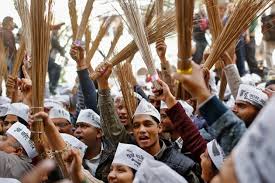New Delhi, Aug 8: The Union Health Secretary Rajesh Bhushan on Friday directed the governments of four states -- Gujarat, Karnataka, Tamil Nadu, and Telangana, to analyse the factors driving the high COVID-19 mortality and devise ways and means to reduce the mortality.
Apart from the higher case mortality, these states account for 17 per cent of India's active cases, high daily new cases, low tests per million, and high confirmation percentage.
In a high-level virtual meeting, Bhushan advised state administrations to adhere to measures suggested by central advisories and guidelines to prevent and reduce mortality due to coronavirus infection.
According to the health ministry, 16 districts in these four states are reporting maximum virus fatalities. It includes -- Ahmedabad and Surat in Gujarat; Belagavi, Bengaluru urban, Kalaburagi and Udupi in Karnataka; Chennai, Kanchipuram, Ranipet, Theni, Thiruvallur, Tiruchirappalli, Tuticorin and Virudhnagar in Tamil Nadu; and Hyderabad and Medchal-Malkajgiri in Telangana respectively.
"The districts were advised to ensure that the advisories, guidelines and clinical treatment protocols issued by the Health Ministry are adopted and effectively implemented to reduce the mortality among COVID-19 patients and other preventable deaths among all sections of the people, particularly those with co-morbidities, pregnant women, the elderly and children," said the health ministry official.
"States were advised to ensure optimum capacity utilization of testing labs, increase tests per million population and reduce confirmation percentage, in addition to ensuring timely availability of ambulances with target zero refusal," the official further said.
"States were also advised to analyze availability and need for projected beds and oxygen, and plan in a timely manner. States and district administration have also been advised to ensure good infection prevention and control practices to control infection in the healthcare workers," said the official.
Principal Secretary (Health) and MD (NHM) from the four States along with district surveillance officers, district collectors, commissioners of the municipal corporation, Chief Medical Officers, and Medical Superintendent of Medical Colleges participated in the meeting.






Comments
Add new comment